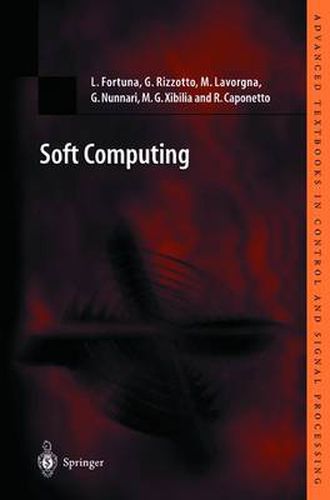Readings Newsletter
Become a Readings Member to make your shopping experience even easier.
Sign in or sign up for free!
You’re not far away from qualifying for FREE standard shipping within Australia
You’ve qualified for FREE standard shipping within Australia
The cart is loading…






This title is printed to order. This book may have been self-published. If so, we cannot guarantee the quality of the content. In the main most books will have gone through the editing process however some may not. We therefore suggest that you be aware of this before ordering this book. If in doubt check either the author or publisher’s details as we are unable to accept any returns unless they are faulty. Please contact us if you have any questions.
In the last decade new artificial intelligence methods for the modelling and control of complex systems, namely neural networks, fuzzy logic and probabilistic reasoning have drawn the interest of researchers and engineers. Recently, the advantages achievable by using combinations of these methods, which have independent origin and evolution, have been pointed out, generating a new paradigm which is now termed soft-computing . This new methodology subsumes the capabilities of neural networks for modelling non-linear systems and for solving classification problems, the power of fuzzy-logic to represent approximate or heuristic reasoning and the large capabilities of evolutionary computation for problem optimisation. The book presents a clear understanding of a new type of computation system, the cellular neural network (CNN), which has been successfully applied to the solution of many heavy computation problems, mainly in the fields of image processing and complex partial differential equations. CNNs’ computation-based systems represent new opportunities for improving the soft-computation toolbox. The application of soft computing to complex systems and in particular to chaotic systems with the generation of chaotic dynamics by using CNN is also described. These aspects are of particular interest owing to their growing interest for research and application purposes.Specific topics covered in the text include:- fuzzy logic, control and neural networks;- artificial neural networks and their application in the modelling and control of dynamical systems;- evolutionary optimisation algorithms;- complex dynamics and cellular neural networks;- applications in urban traffic noise monitoring, robot control and rapid thermal process systems.
$9.00 standard shipping within Australia
FREE standard shipping within Australia for orders over $100.00
Express & International shipping calculated at checkout
This title is printed to order. This book may have been self-published. If so, we cannot guarantee the quality of the content. In the main most books will have gone through the editing process however some may not. We therefore suggest that you be aware of this before ordering this book. If in doubt check either the author or publisher’s details as we are unable to accept any returns unless they are faulty. Please contact us if you have any questions.
In the last decade new artificial intelligence methods for the modelling and control of complex systems, namely neural networks, fuzzy logic and probabilistic reasoning have drawn the interest of researchers and engineers. Recently, the advantages achievable by using combinations of these methods, which have independent origin and evolution, have been pointed out, generating a new paradigm which is now termed soft-computing . This new methodology subsumes the capabilities of neural networks for modelling non-linear systems and for solving classification problems, the power of fuzzy-logic to represent approximate or heuristic reasoning and the large capabilities of evolutionary computation for problem optimisation. The book presents a clear understanding of a new type of computation system, the cellular neural network (CNN), which has been successfully applied to the solution of many heavy computation problems, mainly in the fields of image processing and complex partial differential equations. CNNs’ computation-based systems represent new opportunities for improving the soft-computation toolbox. The application of soft computing to complex systems and in particular to chaotic systems with the generation of chaotic dynamics by using CNN is also described. These aspects are of particular interest owing to their growing interest for research and application purposes.Specific topics covered in the text include:- fuzzy logic, control and neural networks;- artificial neural networks and their application in the modelling and control of dynamical systems;- evolutionary optimisation algorithms;- complex dynamics and cellular neural networks;- applications in urban traffic noise monitoring, robot control and rapid thermal process systems.